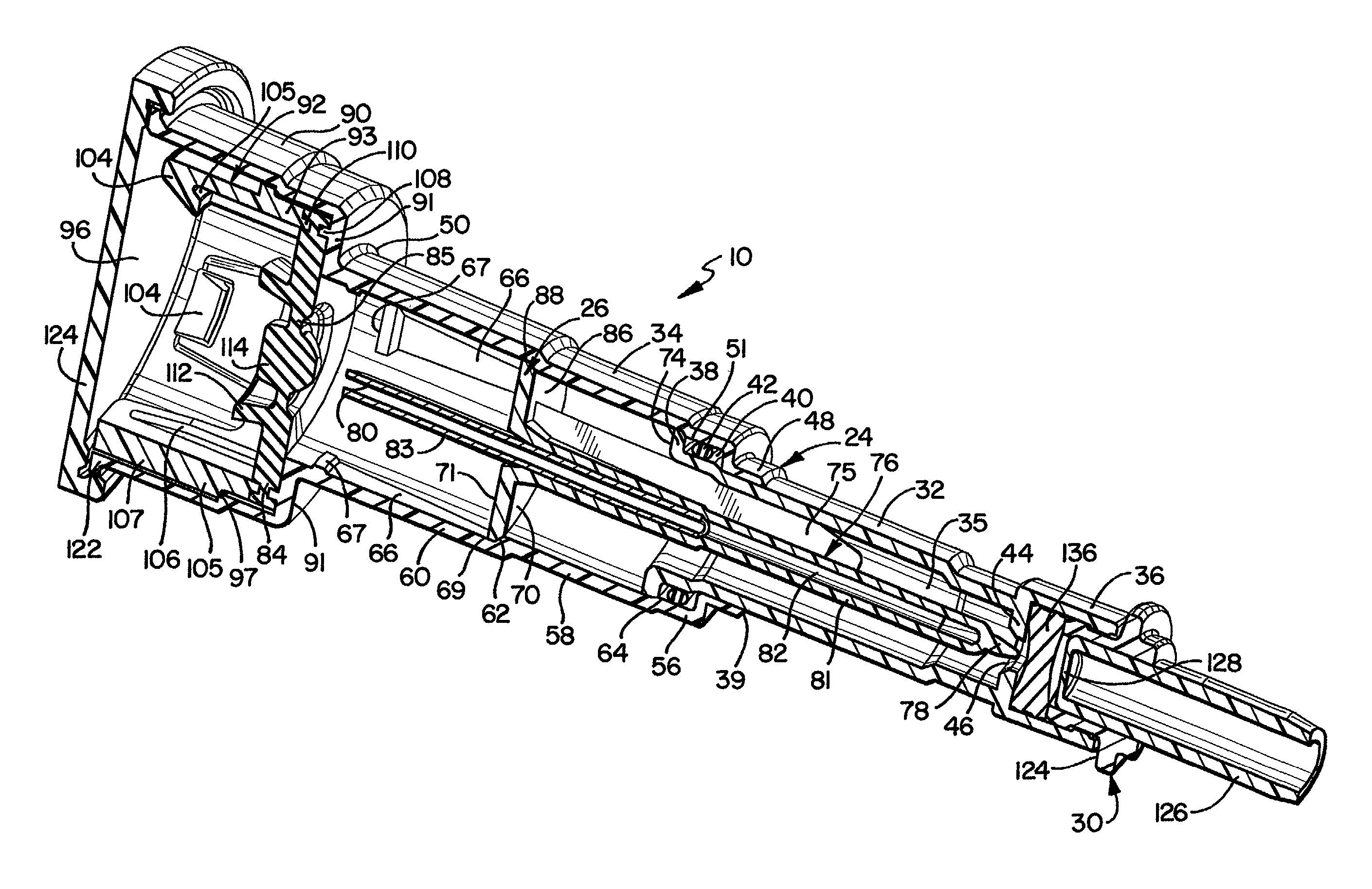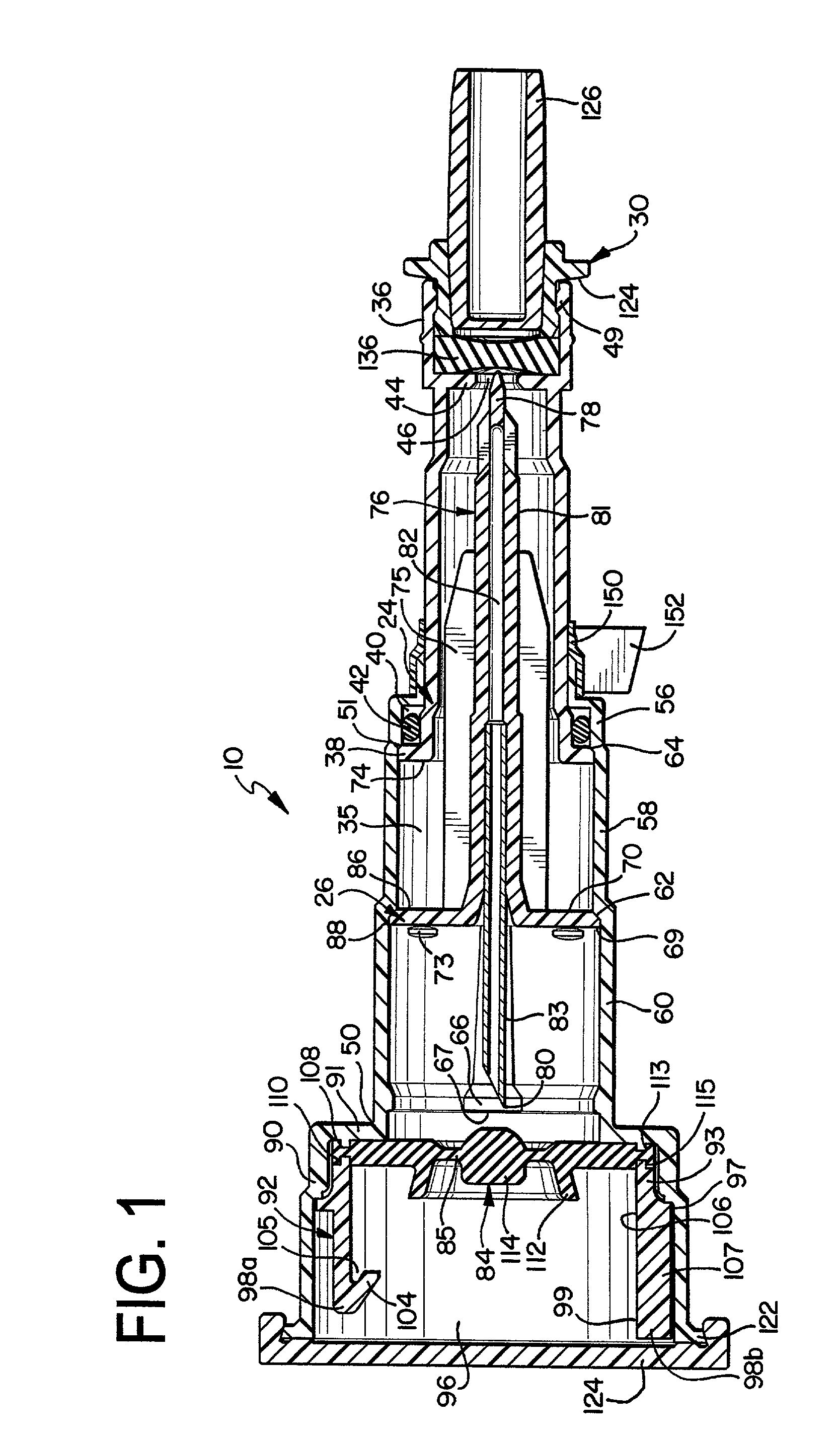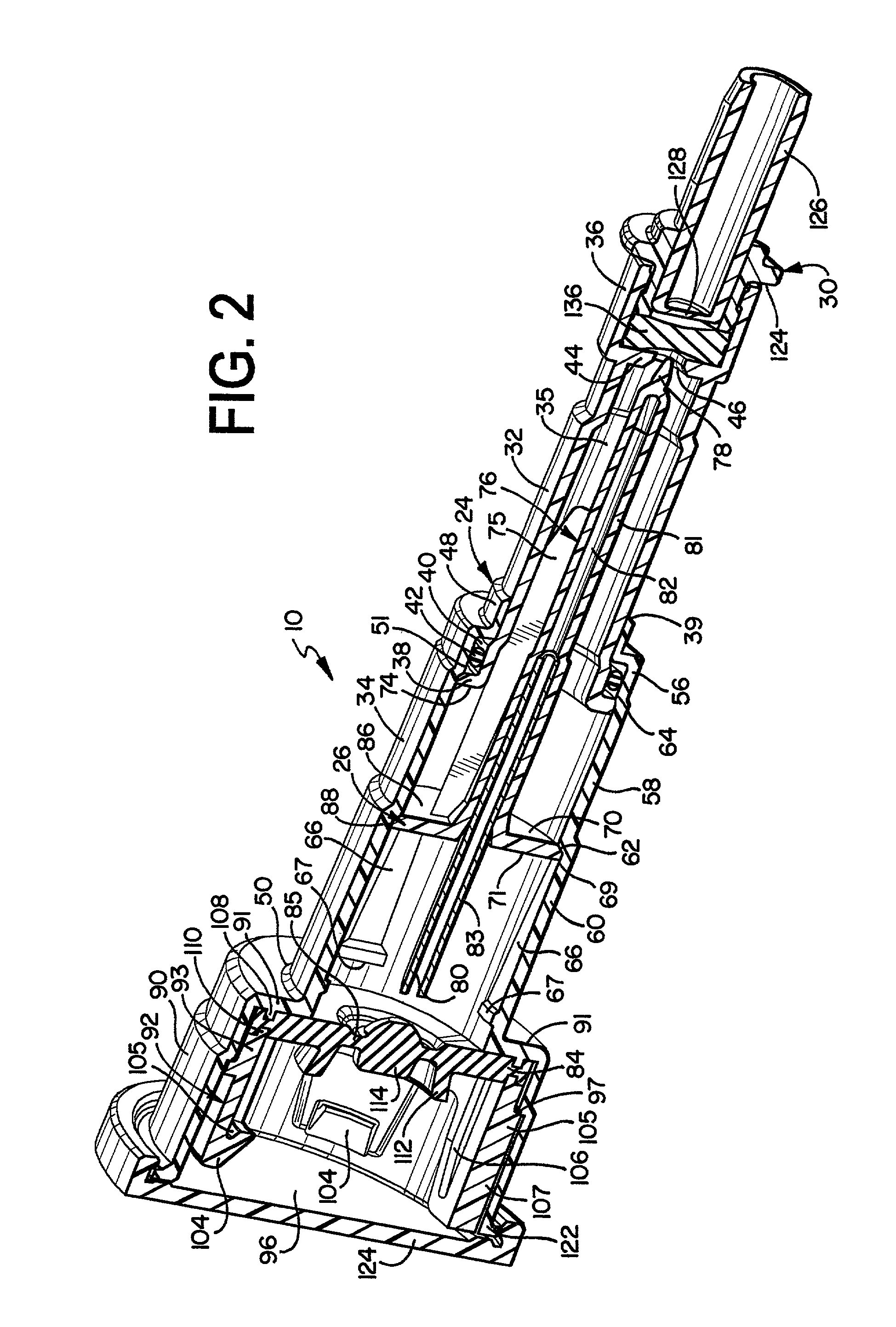Sliding reconstitution device for a diluent container
a reconstitution device and container technology, applied in the field of beneficial agent delivery to patients, can solve the problems of difficult maintenance of sterile conditions, toxic, chemotherapy drugs, etc., and achieve the effect of avoiding contamination, avoiding contamination, and avoiding contamination
- Summary
- Abstract
- Description
- Claims
- Application Information
AI Technical Summary
Benefits of technology
Problems solved by technology
Method used
Image
Examples
Embodiment Construction
[0066]While the invention is susceptible of embodiment in many different forms, there is shown in the drawings and will herein be described in detail preferred embodiments of the invention. It is to be understood that the present disclosure is to be considered as an exemplification of the principles of the invention. This disclosure is not intended to limit the broad aspect of the invention to the illustrated embodiments.
[0067]The present invention provides a connector device that is used to mix two substances within separate containers. More particularly, the invention provides a device to reconstitute a drug with a diluent. To accomplish the reconstitution of the drug, the invention provides an improved connecting device for attaching to a first container, commonly a flexible bag or a syringe, containing a diluent, to a second container, commonly a vial containing a drug to be reconstituted. The connector provides fluid communication between the two containers through a hermetical...
PUM
 Login to View More
Login to View More Abstract
Description
Claims
Application Information
 Login to View More
Login to View More - R&D
- Intellectual Property
- Life Sciences
- Materials
- Tech Scout
- Unparalleled Data Quality
- Higher Quality Content
- 60% Fewer Hallucinations
Browse by: Latest US Patents, China's latest patents, Technical Efficacy Thesaurus, Application Domain, Technology Topic, Popular Technical Reports.
© 2025 PatSnap. All rights reserved.Legal|Privacy policy|Modern Slavery Act Transparency Statement|Sitemap|About US| Contact US: help@patsnap.com



